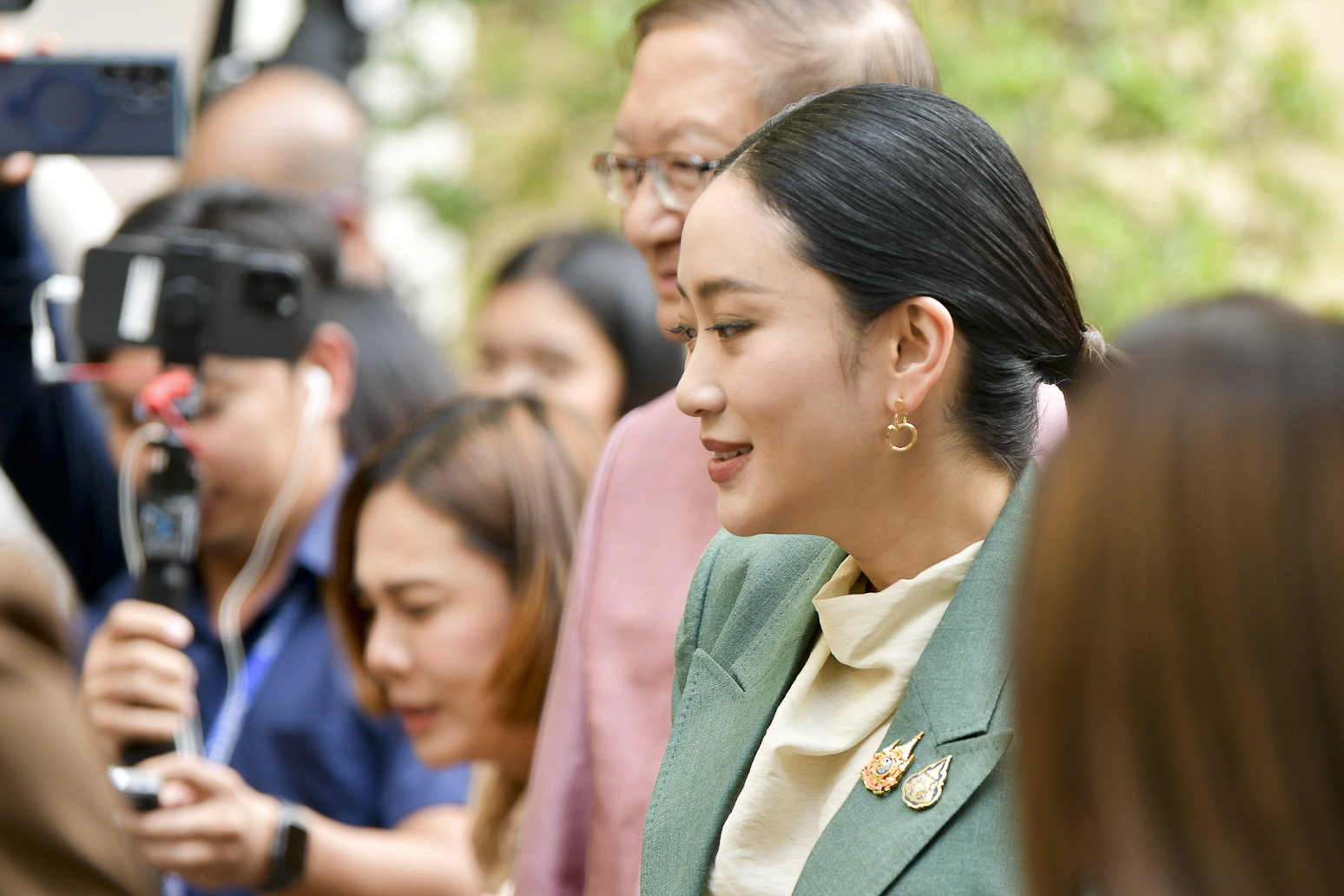After PM Shinawatra suspended, opposition calls for elections
The Pheu Thai leader stepped aside after she was suspended by the Constitutional Court to consider if her phone call with former Cambodian PM Hun Sen was an ethical violation. In the meantime, a court case involving her father, Thaksin Shinawatra, got underway. The People's Party led by Natthaphong Ruengpanyawut is calling for parliament to be dissolved to give voters the power to choose; meanwhile, a cabinet reshuffle was approved this morning. The post of defence minister is vacant.
Bangkok (AsiaNews/Agencies) – I respectfully accept the court's decision and from this moment, I will cease performing my duties,” said Thailand's Prime Minister Paetongtarn Shinawatra pulling back from heading the Thai government.
This highlights the worsening political crisis sparked recently by the release of a phone conversation between the Thai prime minister and Cambodia’s former Prime Minister Hun Sen.
“I want to make it clear that my intentions were more than 100% sincere – I acted for the country, to protect our sovereignty,” she said. “I also want to apologise to all my fellow Thais who may feel uneasy or upset about this matter,” she added.
The phone conversation, which took place on 15 June, was an attempt to defuse border tensions with Cambodia. It backfired because the prime minister, in addition to addressing Hun Sen as “uncle” (a sign of the close ties between the two families), also criticised a high-ranking Thai army commander, for sowing dissatisfaction on the border to favour the opposition.
As a result, some 36 senators filed a petition with the Supreme Court, accusing the prime minister of dishonest behaviour and violation of the ethical standards set out in the Constitution.
Today the Court (which has intervened several times to dissolve governments led by members of the Shinawatra clan) unanimously accepted the petition, with seven votes to two, with the effect of immediately suspending the prime minister.
In the meantime, the government will be temporarily led by an acting prime minister, veteran politician Suriya Juangroongruangkit, 70, the current Minister of Transport.
In a reshuffle decided before the suspension, Paetongtarn Shinawatra was appointed as culture minister, and so can attend cabinet meetings once she is sworn in on 3 July, but she has not commented on this.
Parliament will also meet on the same day, but it will not be able to vote on a no-confidence motion while the prime minister is suspended from her role awaiting a decision.
The cabinet reshuffle, approved by the king, has left the role of defence minister vacant, despite ongoing tensions on the border with Cambodia.
Shinawatra’s political future as Pheu Thai party leader is increasingly uncertain, while observers agree that the government's chances of survival are close to zero.
The recent loss of support from the Bhumjaithai party, the second-largest party in the ruling coalition, left the government with an extremely flimsy parliamentary majority.
The opposition, led by the People's Party, is calling for fresh elections to resolve the political crisis. Leader Natthaphong Ruengpanyawut said today that the current political crisis shows the urgent need for a legitimate, stable and capable government. The only way to restore public trust, he added, is to hold new elections that return power to the people.
At the same time, Mr Ruengpanyawut rejected the use of “legal warfare” to remove politicians, particularly through vague charges left to the discretion of the Constitutional Court, which is close to pro-monarchy and pro-military circles.
Meanwhile, the National Anti-Corruption Commission has opened a second investigation against Paetongtarn Shinawatra, based on the same phone call, which could lead to proceedings before the Supreme Court with the possibility of her permanent exclusion from politics.
Meanwhile, the prime minister’s father, Thaksin Shinawatra – considered the government’s éminence grise – faces two legal proceedings: one for lèse-majesté, linked to an interview given in 2015, and another on the lawfulness of his long hospital stay after returning home in 2023, which spared him jail time.
The crisis once again highlights the historical cleavage between the Shinawatra clan and the monarchist-military establishment that controls the country's decision-making institutions.
For over 20 years, this opposition has sparked coups, politically motivated sentences and forced removals, and now a new phase of political instability could open up in Thailand, even if the coups are judicial and no longer military.
16/07/2025 15:36
20/08/2025 14:55







.png)










